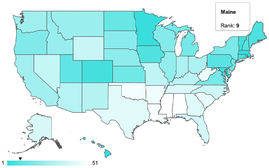Processing Your Payment
Please do not leave this page until complete. This can take a few moments.
- News
-
Editions
-
- Lists
-
Viewpoints
-
Our Events
-
Event Info
- Women's Leadership Forum 2025
- On the Road with Mainebiz in Bethel
- Health Care Forum 2025
- On The Road with Mainebiz in Greenville
- On The Road with Mainebiz in Waterville
- Small Business Forum 2025
- Outstanding Women in Business Reception 2025
- On The Road with Mainebiz in Bath
- 60 Ideas in 60 Minutes Portland 2025
- 40 Under 40 Awards Reception 2025
- On The Road with Mainebiz in Lewiston / Auburn
- 60 Ideas in 60 Minutes Bangor 2025
Award Honorees
- 2025 Business Leaders of the Year
- 2024 Women to Watch Honorees
- 2024 Business Leaders of the Year
- 2023 NextUp: 40 Under 40 Honorees
- 2023 Women to Watch Honorees
- 2023 Business Leaders of the Year
- 2022 NextUp: 40 Under 40 Honorees
- 2022 Women to Watch Honorees
- 2022 Business Leaders of the Year
-
-
Calendar
-
Biz Marketplace
- News
- Editions
- Lists
- Viewpoints
-
Our Events
Event Info
- View all Events
- Women's Leadership Forum 2025
- On the Road with Mainebiz in Bethel
- Health Care Forum 2025
- On The Road with Mainebiz in Greenville
- On The Road with Mainebiz in Waterville
- + More
Award Honorees
- 2025 Business Leaders of the Year
- 2024 Women to Watch Honorees
- 2024 Business Leaders of the Year
- 2023 NextUp: 40 Under 40 Honorees
- 2023 Women to Watch Honorees
- 2023 Business Leaders of the Year
- + More
- 2022 NextUp: 40 Under 40 Honorees
- 2022 Women to Watch Honorees
- 2022 Business Leaders of the Year
- Nomination Forms
- Calendar
- Biz Marketplace
Shutdown ends with budget deal, 3% surcharge scrapped
 Courtesy / Matthew Gagnon, Wikimedia Commons
Gov. Paul LePage ended the three-day state shutdown early Tuesday after signing a $7.1 billion biennial budget that eliminates the controversial 3% tax surcharge on income over $200,000 that was approved by voters last November.
Courtesy / Matthew Gagnon, Wikimedia Commons
Gov. Paul LePage ended the three-day state shutdown early Tuesday after signing a $7.1 billion biennial budget that eliminates the controversial 3% tax surcharge on income over $200,000 that was approved by voters last November.
A three-day state government shutdown ended early Tuesday with a signature from Gov. Paul R. LePage on the $7.1 billion biennial budget for fiscal years 2018-19 that eliminates the controversial 3% tax surcharge on income over $200,000 approved by voters last November.
Negotiations on the budget went late into Monday night as LePage hosted multiple meetings in his Cabinet Room with House Speaker Sara Gideon, Republican House Minority Leader Ken Fredette and other House Republicans.
“I thank legislators for doing the right thing by passing a budget that does not increase taxes on the Maine people,” LePage said in a statement issued by his office. His executive order directing state government to shut down was terminated Monday night by executive proclamation.
Gideon, D-Freeport, characterized the removal of the 1.5% increase of the lodging tax, an increased investment in Head Start and a moratorium on behavioral health reimbursement rate cuts as key agreements resulting in the budget deal.
“Democrats negotiated the best possible deal for Mainers,” Gideon said in a statement issued by her office. “We pledged to be the voice of the people in this budget debate and we never stopped fighting. This budget will increase education funding, lower property taxes, strengthen our economy and protect seniors and Mainers with disabilities. We’ve done exactly that in this budget.”
The final $7.103 biennial budget includes $162 million in direct classroom education funds for a total of $2.1 billion in education investment statewide. It also secures a $14.25 million investment to support direct care workers helping Mainers living with disabilities and elderly citizens.
The budget also makes a $10 million investment in the Maine Community College Systems Strategic Workforce Initiative, designed to give Mainers the skills and training necessary for immediate employment and rejects cuts to reimbursement rates for critical access hospitals that serve most of Maine’s uninsured throughout the state.













Comments